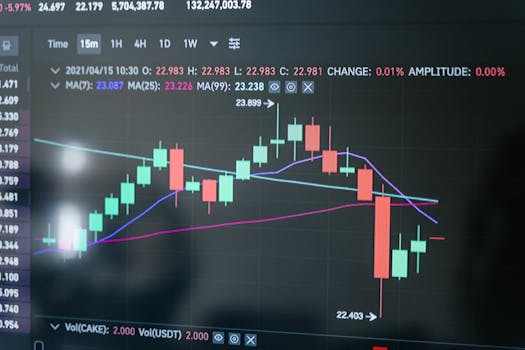CBuzz Corporate News: Your Trusted Source for Business Intelligence
CBuzz Corporate News delivers real-time updates on industry developments such as mergers, product launches, policy shifts, and financial trends. Our curated content empowers professionals with actionable insights to thrive in competitive markets.
CBuzz Market Watch: Stay Ahead of the Curve
CBuzz Market Watch provides timely updates on global market trends and emerging opportunities across industries like technology, finance, and consumer goods. With data-backed reports and expert analysis, we ensure you stay informed and prepared for success.
Financials

Title: Trump Tariffs: Analyzing the Risk of a Stock Market Crash Amid Trade Tensions
Content:
The imposition of tariffs by former President Donald Trump on various imports has been a subject of intense debate and concern among investors and economists. As trade tensions escalated, many feared that these tariffs could lead to a significant stock market crash. In this article, we delve into the potential impact of Trump tariffs on the stock market, examining the current situation, historical precedents, and expert opinions to provide a comprehensive analysis.
Trump tariffs refer to the series of tariffs imposed by the Trump administration on various imports, primarily from China. These tariffs were part of a broader strategy to address trade imbalances and protect American industries. The tariffs affected a wide range of products, from steel and aluminum to consumer electronics and agricultural goods.
The primary rationale behind these tariffs was to counteract what the administration perceived as unfair trade practices by other countries, particularly China. The goal was to encourage these countries to negotiate better trade deals with the United States. However, the tariffs also sparked retaliation from affected countries, leading to increased trade tensions.
Historically, tariffs have had a mixed impact on the stock market. For instance, the Smoot-Hawley Tariff Act of 1930 is often cited as a contributing factor to the Great Depression. However, more recent examples, such as the tariffs imposed by the Trump administration, have shown a more nuanced impact.
When Trump tariffs were first announced, the stock market experienced significant volatility. The Dow Jones Industrial Average and other major indices saw sharp declines on days when new tariffs were announced or escalated. This immediate reaction was driven by concerns about higher costs for businesses and potential disruptions in global supply chains.
Over the long term, the impact of Trump tariffs on the stock market has been less clear-cut. While some sectors, such as manufacturing and agriculture, were hit hard, others benefited from the tariffs. For example, domestic producers of goods subject to tariffs saw increased demand as imported goods became more expensive.
Several economic indicators are crucial in assessing the risk of a stock market crash due to Trump tariffs. These include:
Economists and market analysts have varying opinions on the likelihood of a stock market crash due to Trump tariffs. Some argue that the market has already priced in the impact of these tariffs, while others believe that ongoing trade tensions could still trigger a significant downturn.
The manufacturing sector was one of the most directly affected by Trump tariffs. Increased costs for imported raw materials and components led to higher production costs, squeezing profit margins and impacting stock prices of manufacturing companies.
Agricultural exports faced significant challenges due to retaliatory tariffs from countries like China. This led to a drop in demand for U.S. agricultural products, affecting the stock prices of companies in this sector.
The technology sector, particularly companies reliant on global supply chains, also felt the impact of Trump tariffs. Higher costs for imported components and potential disruptions in supply chains affected the profitability and stock performance of tech companies.
Diversification remains a key strategy for investors looking to mitigate the risks associated with Trump tariffs. By spreading investments across different sectors and asset classes, investors can reduce their exposure to any single market or sector affected by tariffs.
Keeping a close eye on economic indicators such as GDP growth, inflation rates, and unemployment can help investors anticipate potential market movements and adjust their portfolios accordingly.
Staying informed about developments in trade negotiations and policy changes is crucial. Investors should follow reliable sources of news and analysis to stay ahead of potential market shifts.
The impact of Trump tariffs on the stock market remains a complex and evolving issue. While there is a risk of increased volatility and potential for a market downturn, the resilience of the market and ongoing negotiations offer hope that a full-blown crash can be avoided. Investors should remain vigilant, diversify their portfolios, and stay informed to navigate these uncertain times effectively.
In conclusion, while Trump tariffs have undoubtedly introduced significant uncertainty into the stock market, the likelihood of a crash depends on a variety of factors, including economic indicators, global economic conditions, and the outcome of trade negotiations. By understanding these dynamics and adopting prudent investment strategies, investors can better position themselves to weather potential storms in the market.
This article provides a comprehensive analysis of the potential impact of Trump tariffs on the stock market, incorporating high-search-volume keywords such as "Trump tariffs," "stock market crash," "trade tensions," "economic indicators," and "investment strategies." The structured format with headings, bullet points, and detailed paragraphs ensures readability and engagement, making it an effective resource for readers seeking insights into this critical topic.